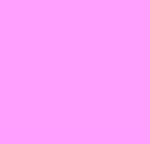The Double-Edged Sword of Cynicism and Hope
I used to believe the world was safe, that people were kind, and that they could look past their differences to find a way to get along. Stepping out of the isolated bubble of my childhood quickly shattered that illusion. Cynicism unknowingly became my shield—an armor forged from witnessing humanity at its worst. My limited exposure to others had left me with a worldview shaped by the sanitized narratives of early 2000s children’s media in a post-apartheid South Africa. I entered adulthood assuming that kindness and basic decency were universal concepts, and that when a villain surfaced, the heroes would always prevail and deliver the punishment he deserved—a form of karmic justice, if you will.
This was, of course, a severe misjudgment. As I grew older and encountered the harsher realities of the world, my faith in humanity began to crumble. Life, always present, steadily chipped away at my naïveté, forcing me to understand that people are capable of far greater harm than I ever could have imagined.
For a while, cynicism felt like the answer—a sharp blade cutting through the comforting lies I had been told. It seemed to provide clarity, a way to strip away the illusions I had grown up believing. But over time, I noticed an odd kind of hope taking root. I wanted to believe that the cruelty and harm I had witnessed marked a boundary—a limit humanity would not cross. This fragile hope offered a sense of stability, helping me make sense of the chaos. If the worst could be defined, perhaps it could also be contained.
Yet deep down, I knew better. History alone provides countless examples of atrocities surpassing anything I have personally encountered. Even those horrors are merely records of what has already happened, leaving the possibility of something even worse looming over the present like a shadow. This quiet understanding—that there may be no true limit—brings a unique kind of dread, an unease that hope struggles to overcome. And still, hope persists, fragile but insistent, offering a glimmer of stability in a world that often feels adrift.
But hope is not without its dangers. Assuming there is a boundary to human cruelty risks underestimating those who operate without constraints. Believing that the worst has passed provides a false sense of safety, shielding the mind from contemplating the unimaginable. It is a dangerous naïveté, one easily exploited by individuals or systems willing to cross lines we never knew existed.
Reflecting on this, I recognize cynicism and hope as opposite edges of the same double-edged blade. Cynicism shields me from naïveté, sharpening my caution and preparing me for the worst. Yet it can also narrow my perspective, lulling me into the belief that I have accounted for every possibility. Hope, by contrast, supplies comfort and meaning, reminding me that even in darkness, something better remains possible. But its delicacy can obscure the full extent of human cruelty.
This precarious balance doesn’t promise certainty, but it does show that navigating the complexities of the world demands both vigilance and a stubborn faith that improvement is still within reach.
Editor’s Note: This essay was composed with assistance from ChatGPT-4o. The insights, themes, and direction are my own, while the AI helped refine the language.
